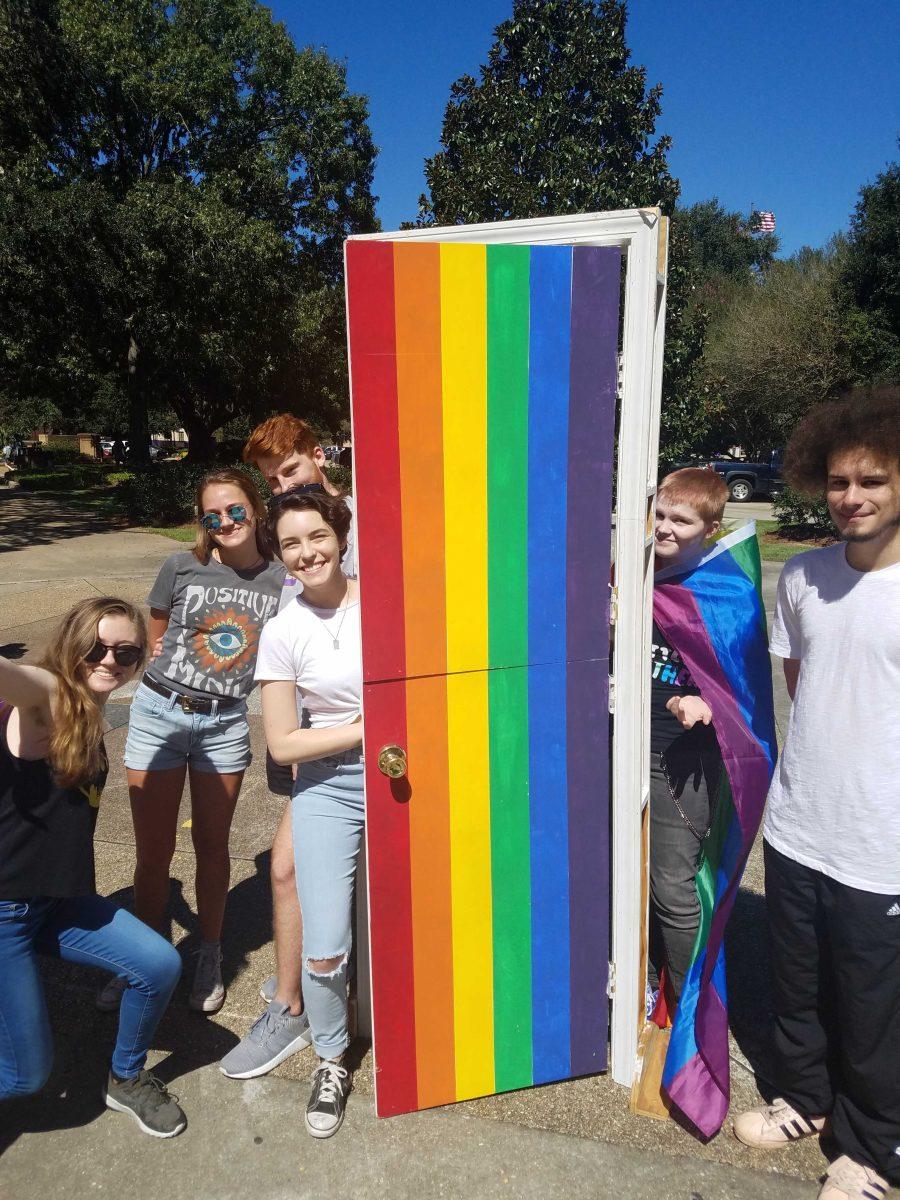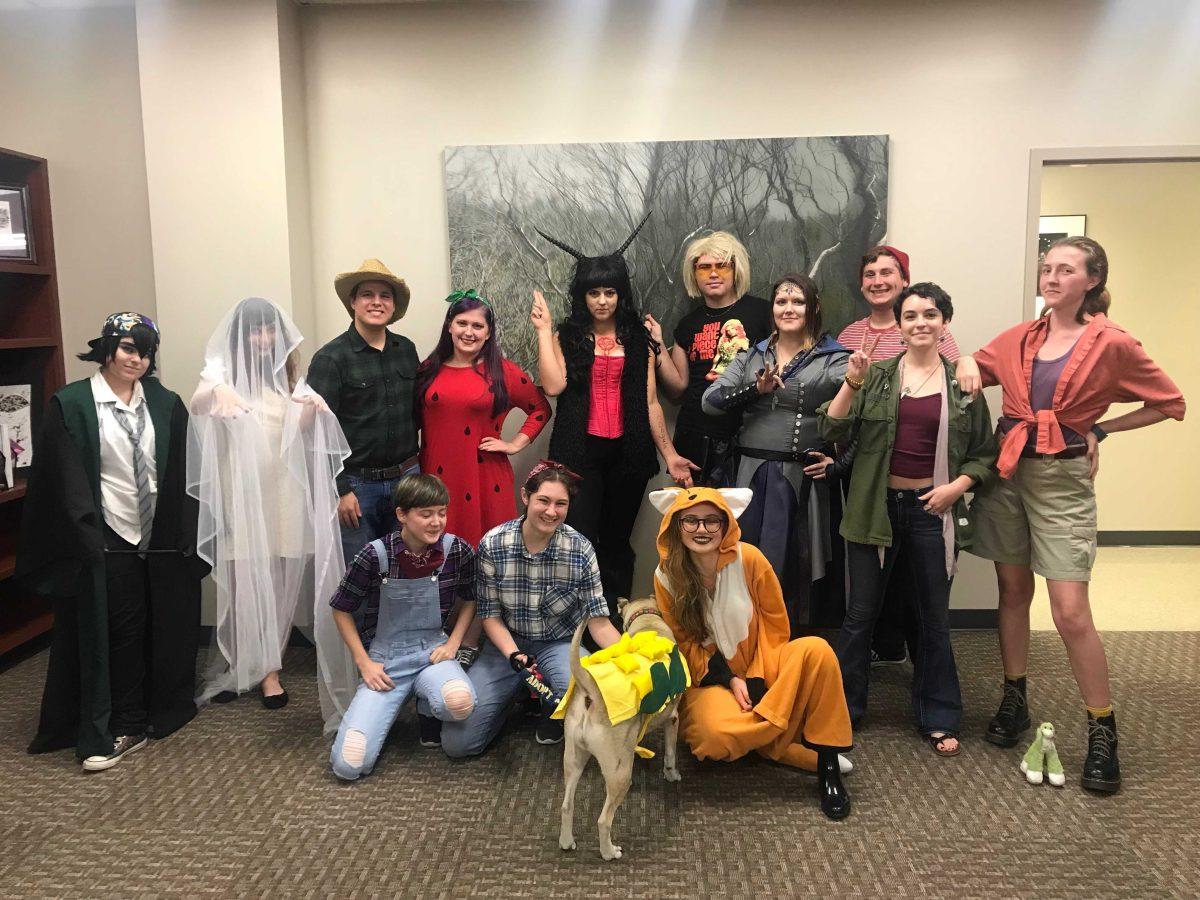Spectrum began as an organization for the queer community on campus in 1977. Members met off campus during the ‘70s in order for students to have privacy because of the discrimination of the LGBTQ community at the time. It was formerlAy known as GBLSU: Gay, Bisexuals, Lesbians and Supporters United.
Spectrum currently has over 100 active members. They have general meetings the first Monday of every month and various social events throughout the month, such as movie night and game night. The first Friday of every month members often go to dinner. Recently, the organization decorated cookies and watched rom-coms on Valentine’s Day.
“I want [members] to feel loved,” sociology junior and president of Spectrum Leieh Fresina said. “They have friends and a chosen family who they can go to, if their family doesn’t accept them for the individual they are.”
Mass communication junior and Communications Coordinator of Spectrum, Anna Foster, joined the organization her freshman year after looking at clubs on campus online. She was excited there was a LGBTQ organization on campus.
“I was like cool, there’s an LGBTQ club here,” Foster said.
According to Spectrum’s website, it empowers and supports LSU’s lesbian, gay, bisexual, transgender, queer/questioning and asexual/aromatic (LGBTQA+) communities as well as their allies, by providing social support, education, programming and opportunities to participate in campus and community activism.
“I hope [members] feel accepted and not lonely,” Foster said. “I want them to know that [Spectrum] will welcome them and [they] have a network of support if they need it.”
Some programs Spectrum hosts are First Contact, Spectrum Panels, First Fridays and the Louisiana Queer Conference. Each are social events where students can socialize and provide leadership development and support.
Fresina said her personal goal for the organization is to have a larger presence on campus by becoming more well known. Spectrum currently has their own physical space on campus in the Women’s Center, known as the LGBTQ+ Resource Room.
Foster said she is hopeful the organization will participate more in political activism, such as lobbying, in the future.
“Everyone getting involved in Spectrum doesn’t have to be queer,” Foster said. “We want people to show up and support us.”
According to Fresina, it depends on who you ask whether or not there is discrimination of LGBTQ students on campus.
Many students now consider the LGBTQ community more accepted than when the organization initially began. However, many professors and those holding leadership positions think the acceptance level is still the same as when Spectrum began, according to Fresina. Fresina said she believes people are becoming more accepting of the LGBTQ presence on campus.
There are members who don’t identify themselves as either male or female and others who do, according to Fresina. Members identify themselves as women, men and those similar to Fresina, identify as neither.
Fresina has said students should be more aware of their surroundings, including people they are with in their classrooms. She said she believes people need to abide by their suggested pronouns.
“A lot of people think LSU doesn’t really have a large queer community, but that is not true,” Fresina said. “We’re here. We’re queer. We’re everywhere.”
Spectrum members dress up for a costume contest they held last Halloween.






